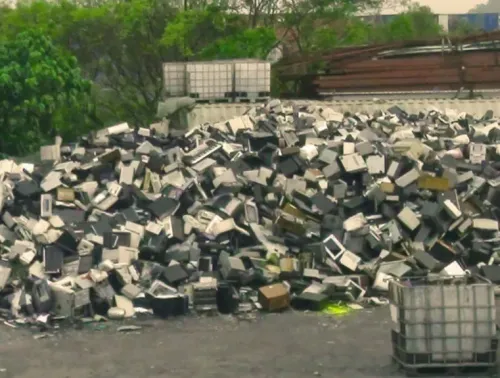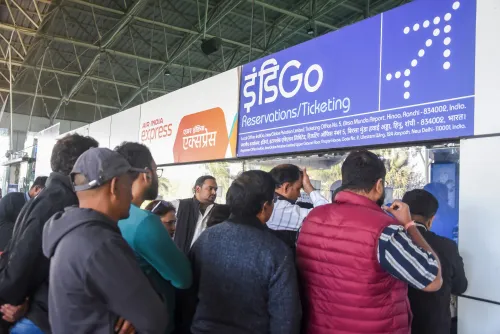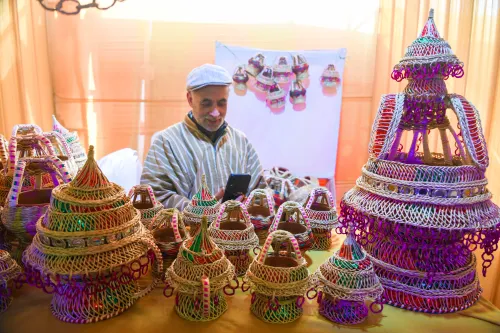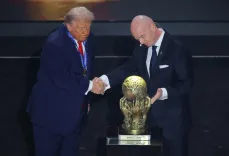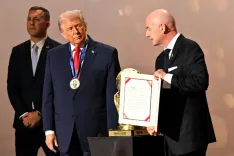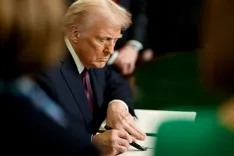Can India and Japan Diversify Their Trade Basket and Open New Frontiers with Renewed Efforts?
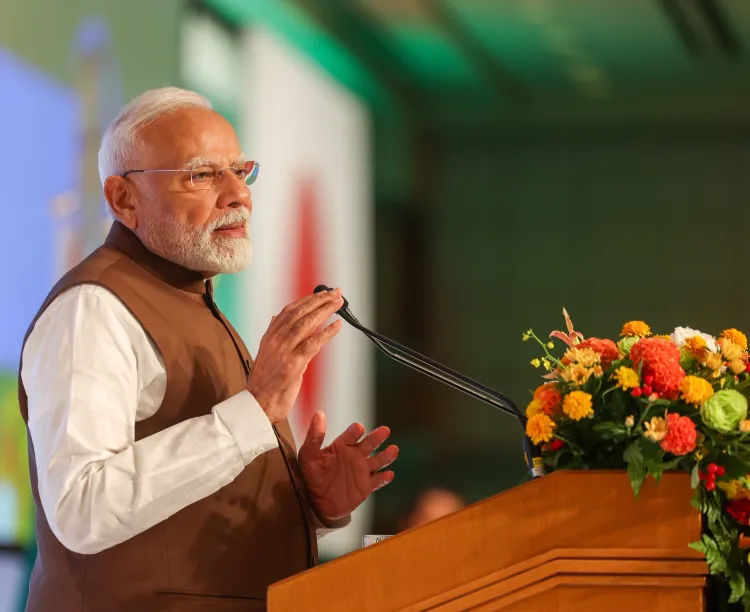
Synopsis
Key Takeaways
- India and Japan are strengthening their economic ties.
- Renewed efforts can lead to a more balanced trade basket.
- Semiconductors are a key area for collaboration.
- Japanese firms are increasingly investing in India.
- India's reforms are making it easier for foreign companies to operate.
Tokyo, Aug 29 (NationPress) Celebrating the strong economic and trade collaboration between India and Japan, Prime Minister Narendra Modi stated on Friday that with renewed initiatives, both countries can broaden their trade spectrum, achieve better balance, and unlock new opportunities.
In an interview with the Japanese publication The Yomiuri Shimbun, the Prime Minister expressed the need for bigger aspirations and continuous ambition.
"The synergies among governments, businesses, and citizens can enhance the scale and pace of our economic collaboration. As leading global economies, we have been instrumental in fostering each other’s growth, competitiveness, and vibrancy," PM Modi shared with the outlet.
Japan has been a reliable ally in India’s infrastructure advancement over the years and remains a primary source of foreign direct investment (FDI) in critical sectors such as automobiles, electronics, telecom, chemicals, finance, and pharmaceuticals.
PM Modi noted that the presence of Japanese firms in India has steadily increased to approximately 1,500, while more than 400 Indian enterprises are operational in Japan.
"Clearly, this is merely the onset — the actual potential is significantly larger," he remarked.
"We maintain crucial trade ties, but it has yet to achieve the anticipated levels under our CEPA (Comprehensive Economic Partnership Agreement)… The 20th century saw Japan emerge as a significant partner in India’s infrastructure growth. I am confident that the 21st century will see Japan play a pivotal role in India’s innovation, manufacturing, and global value chains," the Prime Minister asserted.
Regarding semiconductors, PM Modi mentioned that India’s semiconductor sector is poised for transformation.
"We have established a comprehensive regulatory and policy framework, supported by incentives, to create a robust semiconductor and display ecosystem. Currently, six semiconductor units are establishing in India, with four more in the pipeline. By year’s end, ‘Made in India’ chips will be available in the market, showcasing India’s design and manufacturing prowess," the Prime Minister noted.
Japanese firms, leveraging their technological expertise and global leadership, can play a crucial role in this evolution, he added, indicating that a strong foundation has already been laid.
"By merging India's scale and capabilities with Japan's advanced technologies, we can establish a resilient and trustworthy semiconductor value chain," PM Modi emphasized, stating that this cooperation will bolster both nations' technological ambitions and enhance global supply chain security.
"I foresee semiconductor collaboration emerging as a crucial pillar of the India–Japan partnership. In this digital era, chips symbolize not just technology, but also competitiveness, reliability, and confidence in the future," he remarked.
Some Japanese businesses are establishing their production facilities in India as hubs for markets in third countries like Africa.
According to PM Modi, India has undergone multifaceted reforms that ease manufacturing in the country.
"We have alleviated compliance burdens, launched incentives, and ensured a large skilled workforce for companies to operate in India. Numerous global corporations, including those from Japan, are setting up their production in India not only to serve our domestic market but also for the global market," he highlighted in his responses.
This week, Japanese automotive giant Suzuki Motor Corporation declared its intention to invest ₹70,000 crore in India over the next five to six years. This investment aims to boost production, introduce new car models, and maintain its leadership in the world’s third-largest automobile market.
"Just a few days ago, I visited the Suzuki facility in India, where we inaugurated electric vehicles destined for export to a hundred countries, including Japan," PM Modi stated.


